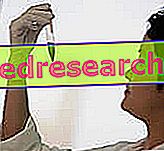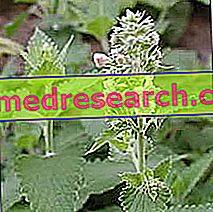Diarrhea means the expulsion of liquid and basically watery feces (sometimes with mucus and / or blood and / or pus). May be accompanied by: cramps and pain, swelling and flatulence, nausea and vomiting.

The causes of diarrhea are the most varied:
- Infections and parasitosis.
- Autoimmune inflammatory chronic diseases (ulcerative colitis, Crohn's disease).
- Anatomical and functional alterations of the digestive system.
- Diet:
- Foods with irritants and / or stimulants (chilli, pepper, caffeine, alcohol, etc.).
- Lactose and gluten IF not tolerated.
- Excess of prebiotics and / or probiotics.
- Drugs.
- Alteration of intestinal bacterial flora.
- Laxatives and enteroclisms.
- Anxiety or fear or panic.
Diarrhea can cause dehydration, loss of minerals, malnutrition, anal fissures and inflammation of the haemorrhoidal plexus.
What to do
- In case of diarrhea, the first thing to do is to find out the cause. Sometimes, medical diagnosis is necessary. The most frequent clinical studies are:
- Medical examination with medical history: sometimes reveals incorrect eating habits or the presence of a relevant emotional component.
- Stool examination: to exclude the presence of localized infection or infestation.
- Blood test: to exclude systemic or inflammatory diseases, etc.
- Exclusion diet: serves to exclude adverse reactions to food (for example gluten, lactose, nervine, spicy etc).
- Visual analysis: with the use of an instrument called a sigmoidoscope, it is possible to analyze the rectum and the terminal portion of the colon.
- Endoscopy: it is called a colonoscopy and comes much deeper than the previous technique; sometimes anesthesia is required.
- Radiological examinations: virtual colonoscopy, scintigraphy, etc.
- Secondly, it is advisable to adopt a series of measures that can also be demonstrated with real remedies:
- Stop the use of laxatives or enteroclisms.
- Suspend non-essential drugs.
- Suspend non-essential supplements; pay particular attention to: chelating, thermogenic, creatine and osmotic.
- If diarrhea is acute, suspend foods, supplements and pre- and pro-biotic drugs.
- If in doubt, remove the foods that "may have triggered diarrhea".
- Combat dehydration and saline loss.
- Combat general malnutrition.
- Avoid foods that are difficult to digest (especially in the case of anatomical and functional alterations of the digestive system: cholecystectomy, resection of parts of the intestine, etc.).
- If diarrhea is acute, follow a low-residue or low-fiber diet (in particular non-soluble ones). Isolated soluble fibers that can increase fecal consistency are allowed.
- Eliminate the irritating molecules; among these, above all, certain foods and drugs.
- Exclude lactose; in the doubt of celiac disease, also remove gluten.
- Prefer astringent foods.
- Prevent emotional states of anxiety, fear and panic.
What NOT to do
IT IS UNBELIEVABLE:
- Ignore the symptom, especially in case of chronic diarrhea. It can prevent the diagnosis of even very serious problems.
- Resume the use of laxatives or enteroclisms at the first signs of improvement. It is a condition that often occurs in people suffering from eating disorders and adopting purgative systems.
- Take medications without medical advice, especially when not needed.
- Take food supplements (including pre- and probiotics), especially in the doubt that they may be involved.
- Eating the foods that preceded the attacks of diarrhea.
- Ignore the complications of: dehydration, saline loss and general malnutrition. NB . Some supplements useful for the prevention of these problems could be directly involved in the onset of diarrhea (vitamin and salt supplements).
- Eat hardly digestible meals; this concerns the composition (excess of fats and proteins), the cooking method (prolonged cooking, frying) and the quantity (too abundant).
- Take large quantities of dietary fiber, especially insoluble.
- Drinking alcohol, coffee, energy drinks, etc.
- Drink milk and eat fresh cheese.
- In the case of celiac disease, consume foods containing gluten.
- Giving in to anxiety, fear and panic.
What to eat
Astringent foods, which do not provide large amounts of fiber, which have no laxative function and are easy to digest, can promote remission of diarrhea.
- Among the astringents we mention: lemon, unripe bananas, medlar, carob flour and tea.
- Foods that do not contain fiber are those of the I and II basic food group. Among these, the most suitable are: lean meat and fishery products, poor in connective tissue (poultry, rabbit, fillet and loin of larger animals, sea bream, sea bass, cod, shrimp, etc.), very mature and non-fat cheeses (especially grana padano and parmigiano reggiano).
- Foods that do not have a laxative function; these include (in addition to the previous ones) also vegetable ones but with a reduced quantity of fibers or other prebiotic molecules: boiled potatoes, boiled rice, semolina, black and red blueberry, blackberries, apples, boiled carrots, strawberries etc.
The most suitable cooking systems are:
- Drowning or boiling (also under vacuum and pressure).
- Steam powered.
- Vasocottura.
- In the microwave.
- In the oven MA in foil.
- Pan over moderate heat.
What NOT to Eat
To avoid are:
- Milk and dairy products (mozzarella, certosa, ricotta, etc.).
- Laxative foods: because they are rich in fiber or other laxative or prebiotic molecules. Whole grains, non-peeled legumes, honey, kiwi, milk (especially hot), broth, tamarind, cassia, dried fruit, figs, licorice, oilseeds, bran, beer etc.
- Probiotic foods: these are fermented and rich in lactobacilli, bifidobacteria and eubacteria. The best known are: yogurt, kefir, buttermilk, tofu, tempeh, etc.
- Foods that are very fatty, too protein-rich or rich in connective tissue: salty and sweet snacks, creamy desserts, cuts of fatty meat (ribs, bacon), sausages and cold cuts (sausages, mortadella, etc.), fatty cheeses (eg mascarpone, burrata) etc.), molluscs, certain offal, etc.
- Excessive condiments.
- Large portions.
- Cooking methods that make food poorly digestible:
- Frying.
- Stewing.
- Rare.
- Brazing.
Natural Cures and Remedies
Some herbs, also taken as supplements, are considered natural remedies against diarrhea.
These include:
- Maple.
- Carob.
- Altea.
- Strawberry tree.
- Sorbo.
- Tormentilla.
- Acacia.
- Agrimony.
- Cinquefoil.
- Oak tree.
- Euphrasia.
- Walnut husk.
- Anise.
- Witch Hazel
- Hawthorn.
- Rhubarb.
- Pimpinella.
- Alchemilla.
- Acerola.
Some drinks against diarrhea are:
- Witch hazel tea: 2-3 grams per 150ml of water three times a day.
- Decoction of blueberries: boil the blueberry fruits in one liter of water for 5 '; leave to rest for another 5, then filter and consume two cups away from meals. In children the doses will be halved.
- Marshmallow decoction: boil the drug in half a liter of water, until the liquid is reduced by two thirds of its volume. Leave to rest and then filter.
- Infusion of Ceylon black tea: bring about two liters of water to boil and leave the sachets to infuse for 15-20 minutes. Drink about one liter a day.
- Blueberry, marjoram and mallow herbal tea: pour two tablespoons of herbal tea preparation into a liter of boiling water. Infuse for 10 minutes, filter and drink during the day.
Pharmacological care
The pharmacological treatment of diarrhea varies according to the causative agent.
Usually, the causes of diarrhea that require pharmacological intervention are intestinal bacterial or parasitic infectious.
- Lactic ferments and probiotics: reconstitute the intestinal physiological barrier, in turn responsible for the fight against pathogenic bacteria in the intestine.
- Specific antibiotics: broad-spectrum antibiotics are not suitable because they also damage the intestinal bacterial flora. There is a specific category necessary for the treatment of dysentery.
- Antiprotozoans: against protozoan infestations.
- Spasmolytics: they do not affect the infection but reduce the symptoms; they are also widely used for other forms of diarrhea.
- Vegetable charcoal: absorbs gases and partly excess fluids in the intestine.
- Anxiolytics: they work in cases of psychosomatic diarrhea.
Prevention
Like the choice of drugs, the preventive recommendations also depend on the cause:
- For infectious or infestation diarrhea it is absolutely necessary to respect the general hygiene and food criteria. This is especially important abroad, in countries where the level of food and water safety seems compromised. Someone starts probiotic supplementation 15 days before the stay.
- In emotional diarrhea deep relaxation techniques, mental training and the preventive use of anxiolytics can be very useful.
- In the case of diarrhea caused by food, drugs and supplements that are not tolerated, it is sufficient to exclude the responsible products.
- As for the diarrhea caused by chronic intestinal diseases, it is necessary to follow the dedicated food guidelines, avoid alcohol and not smoke.
Medical treatments
Medical treatments in diarrhea can be aimed at treating the most serious diseases, often responsible for the entire symptomatic picture.
Some examples concern chronic intestinal inflammatory diseases, some cancers, diverticulitis, etc.



